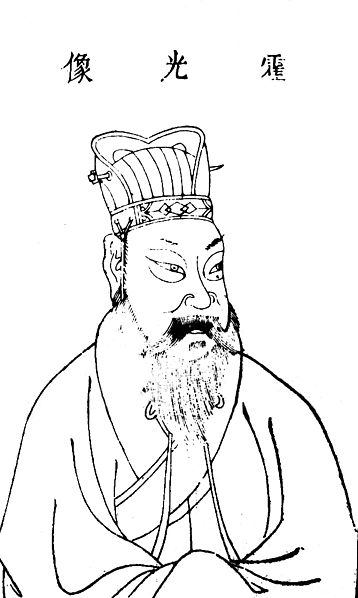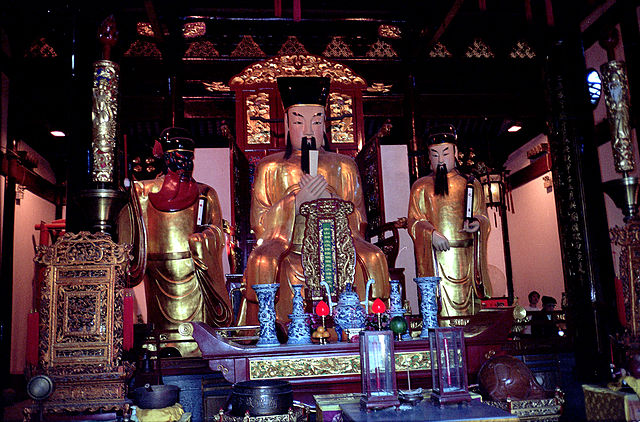Liu He was briefly the ninth emperor of the Han dynasty. Originally King of Changyi, he was installed by the powerful minister Huo Guang as emperor in 74 BC, but deposed only 27 days later, and omitted from the official list of emperors. He lost his original kingdom of Changyi and was demoted to the rank of marquis. He was given the new fief of Haihun in modern Jiangxi Province and became known as Marquis of Haihun (海昏侯).
Personal stamp of Liu He
Goose-shaped bronze lamp excavated from the tomb.
Huo Guang, courtesy name Zimeng (子孟), was a Chinese military general and politician who served as the dominant state official of the Western Han dynasty from 87 BCE until his death in April 68 BCE. The younger half-brother of the renowned general Huo Qubing, Huo was a palace aide to Emperor Wu and secured power in his own right at the emperor's death, when he became principal co-regent for Emperor Zhao. Huo outmaneuvered his colleagues in the regency and assumed personal control over state affairs, consolidating his power by installing family members and other loyalists in key offices. Following Emperor Zhao's death in June 74 BCE, Huo engineered the succession and deposition of Liu He within a mere 27 days. Huo next facilitated the accession of Emperor Xuan and retained control of the Han government until his death.
Portrait of Huo Guang in Sancai Tuhui
Huo Guang at the center of an altar in Shanghai City God Temple




